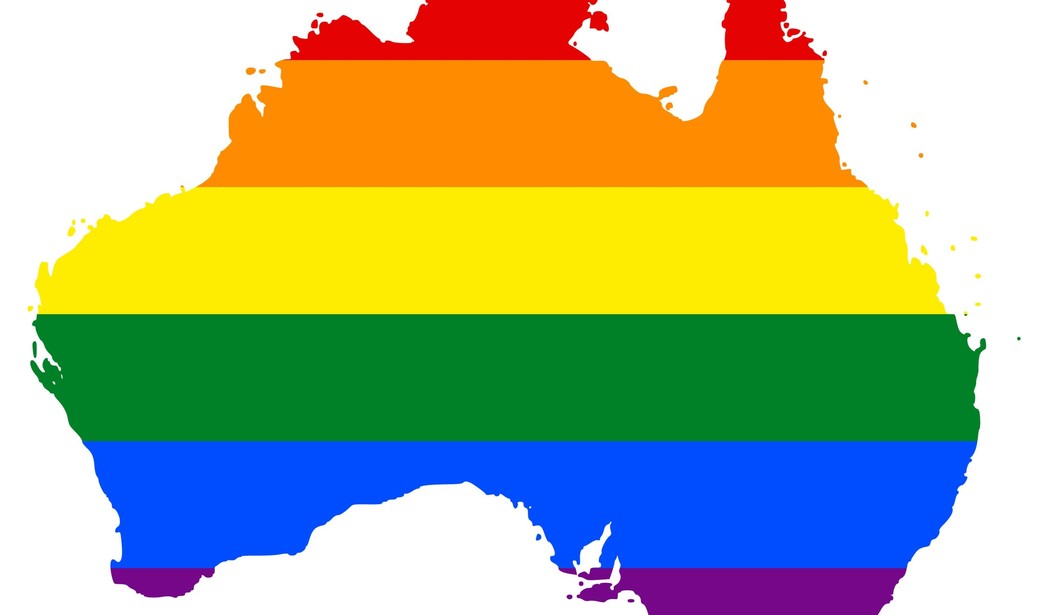A new survey of lesbian, gay, bisexual, transgender, and intersex (LGBTI) people in Australia has found widespread opposition to any legal provision allowing churches, ministers, businesses, or civil celebrants to refuse to take part in a gay wedding.
Same-sex marriage is not yet legal in Australia, although civil unions and domestic partnerships are recognized. As of September of last year, 21 same-sex marriage bills have been proposed in the Parliament of Australia, but none has passed. The current legislation being proposed by the government would allow religious and civil celebrants to turn away same-sex couples based on their religious or personal beliefs. The new survey suggests most LGBTI people emphatically disagree with this compromise, however.
Ninety-two percent of LGBTI people in the poll said they opposed exemptions for civil celebrants — people who preside over non-religious weddings — BuzzFeed reported. When asked if they would accept such an exemption in order to pass same-sex marriage in Australia, 91.2 percent still opposed it.
Fifty-nine percent disagreed with an exemption for religious celebrants, while 27.8 percent agreed, and 12.8 percent were undecided. Let that sink in — nearly 60 percent of LGBTI people in Australia say it should be illegal for a pastor or religious minister to refuse to marry a same-sex couple. This position also flies in the face of current law, where Australian pastors have the right to refuse to marry anyone.
But it gets worse. A whopping 94.3 percent of respondents opposed any exemption allowing a religious organization to deny use of its property for a same-sex wedding. This would include a banquet hall next to a church (which thus provided a “non-religious service”) that the church rented out for other occasions. According to these people, a church should not be able to refuse to rent its property for a same-sex wedding, even if the church believes that marriage is between a man and a woman.
When the LGBTI respondents were asked whether they would let a church refuse to rent its property, in order to make same-sex marriage legal in Australia, 90.6 percent still opposed any such exemption. The government’s proposed same-sex marriage bill does include a provision allowing “religious bodies and organizations” to refuse to provide facilities or goods and services to same-sex couples for their weddings, or for a purpose connected to their weddings.
The survey also addressed exemptions (and possible compromises) which were not in the government’s proposed same-sex marriage bill, but have sparked controversy in other countries.
Approximately 90 percent of respondents opposed exemptions for florists, bakers, photographers, and other private businesses which normally serve weddings. This would include cases like that of Aaron and Melissa Klein, owners of an Oregon bakery who gladly served pastries and other sweets to gay and lesbian customers, but would not bake a cake for a same-sex wedding. For this act of “discrimination” (which was more an exercise of free speech), the Kleins were fined $175,000 — more than their life savings — and forced out of business.
Ninety-eight percent of LGBTI Australians also opposed legal refusal of service by government employees at the registry of Births, Deaths, and Marriages — an issue brought up by the case of Kim Davis, a Kentucky county clerk who refused to sign marriage licenses to same-sex couples.
This was not a small survey, either. Funded by Parents and Friends of Lesbians and Gays (PFLAG) and in partnership with just.equal, the online survey collected 6,342 responses between January 6 and January 15 including Australian citizens and residents age 18 or older who identified themselves as LGBTI.
“This suggests LGBTI people are more interested in true equality than access to marriage for marriage’s sake,” read the study’s executive summary. That’s one way to put it. Here’s another: “You will be made to care, and to participate.”
Many LGBTI Australians commented on the study, explaining why compromises such as allowing churches to deny the use of property for same-sex weddings are not worth it, in their estimation. “As important as marriage equality is to me, I would rather wait than face a conditional system like this. A system that allows people to discriminate on [sic] us based on our sexuality is compromised and flawed,” one comment read.
As hard as it might be for some people to accept, there are millions who still subscribe to the stone-age belief that marriage is between one man and one woman (as the Bible explains). These people should have the religious freedom (and free speech rights) to refuse to take part in gay weddings, even if they are to become legal.
This emphatically does not mean that anyone should be able to abridge the freedom of LGBTI people. In fact, while Christians should oppose the idea of same-sex marriage, we are called by God to reach out in love to all people, gays and lesbians emphatically included. Just because millions of Christians (and Jews and Muslims, for that matter) are opposed to same-sex marriage does not mean they are opposed to love, compassion, and acceptance. As in most areas of politics, a compromise is necessary.
If gay marriage becomes legal in Australia, there is a large group of people who will fight to make sure not only that gays and lesbians can get married but that no one else will be able to “opt out” of celebrating, hosting, baking for, or snapping photos of their wedding. That is wearisome, to say the least.









Join the conversation as a VIP Member